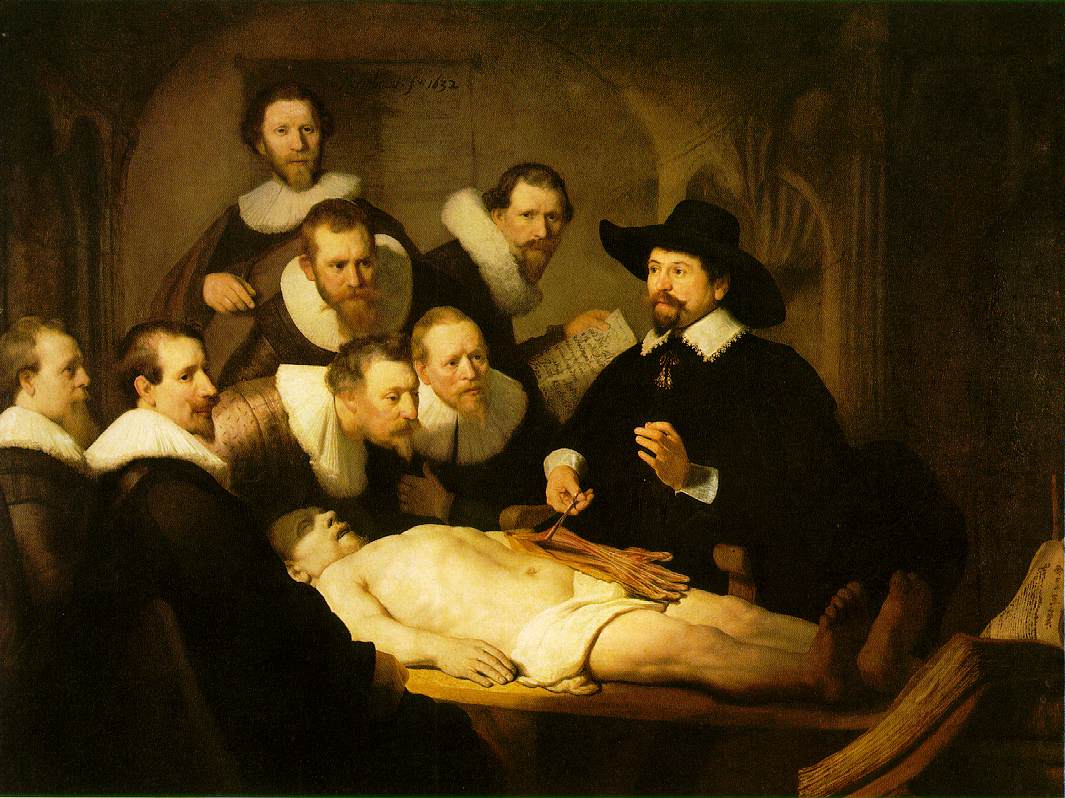The last time I posted, I was just a first year medical student, naive to the ways of the world and ignorant of the practice of medicine. Much has changed since that last post. Specifically, two things have changed. First of all, I'm now a
second year medical student which means I'm allowed to shove first years into their microscope lockers or slip cholera bacteria into their drinks in the cafeteria. The second change is that I've almost completed our Brain and Mind course. So, while I'm still entirely ignorant of the practice of medicine, I'm only largely ignorant of the way a healthy head is supposed to work.
Last year, most of my patient contact was with patients from a small general practice. These folks were typically getting checked up to make sure their diabetes or hypertension was under control. Later in the year, I hung out at the lymphoma clinic at the cancer hospital next door. While lymphoma can be a serious and life-changing diagnosis, the patients I worked with weren't acutely ill. More often than not, I would spend my time chatting with them about their medical, social, and family history then watch the doctor glance over a few charts and say something along the lines of, "I see no reason to begin treatment now. How about you come back in six months?"
Over the course of the year, I became very comfortable taking a patient history, so I didn't think much would change this year when we started interviewing our psych patients. It's just an interview, right? I ask questions, write down answers, smile when it's appropriate, frown when they frown. Piece of cake, right?
So there are a couple of reasons why my interviews with psych patients have been difficult. The first is that some of my patients have had fairly profound cognitive deficits. Before my first interview, I had assumed that the course administrators would start me off slowly. Maybe a patient with a mild mood disorder that's in remission. Maybe someone with hypomania and I'll diligently write down that "the guy talks fast." But, no. My first interview with a psychiatric patient in a clinical setting was with a schizophrenic patient with a string of suicide attempts on her record. The interview was not much like the medical histories I'd taken before (and, of course, the details I'm about to provide are changed from the patient's actual story, but the gist is there). The patient, who was bandaged up pretty well and confined to a wheelchair, told me that she was brought to the hospital after she fell off a subway platform and was hit by a train. Her expression didn't change, but I frowned anyway. It seemed like the right thing to do.
"So, can you tell me what happened before you fell off of the platform?"
"I needed to get away. I needed to get away to join the army, but I couldn't get on the train because I'd get caught and taken back to the hospital, so I jumped into the tunnel."
You know what's not an appropriate follow-up question in a medical interview? You're about to find out.
"Seriously?"
I was rarely able to elicit both a relevant and decipherable answer from this patient. The rest of the interview involved tangential and nonsensical discussions of whatever she wanted to talk about.
The second reason that I've found these interviews so difficult is because the information is so unreliable. This isn't because psychiatric patients are unreliable (though, obviously, there are some conditions that impair cognitive function to a degree that the history you get is clearly untrue). Rather, the information is unreliable because the interviews focus on the one subject that elicits the most guilt or embarrassment from the patient. If I spent forty minutes talking to a hypertensive patient about his salt and cholesterol intake ("Oh doc, I've been eating real good. Last night I had this, like cauliflower gratin with capers, it was DEE-lectable!"), I guarantee you that the meals he describes would all come from Weight Watchers commercials he watched while eating potato chips and licking sticks of butter.
Psychiatric patients often know exactly what would concern their doctor, and if they're not concerned about it, their doctor's not going to hear about it. Often, it's not until I get back to the nurses station and read reports from other clinicians or family members that my questions get answered. Like all those questions I had about the kindly, older woman who thinks I have "just the most beautiful smile!", who houses stray dogs, and who told me that she never drinks and didn't even touch alcohol until she was 28. It turns out that woman has about a half dozen drinks a night to wash down her benzodiazepines.
Accordingly, most of our patients don't think they have anything to discuss, but they'll chat with me to help me complete my school assignment. And at the end of the interview, I have to determine exactly what it is that the patient is most worried about. That thing, their chief complaint, is listed first our reports. Last year my reports started like this:
CC: Patient has had a productive cough lasting two weeks
or
CC: Patient is experiencing acute lower right quadrant abdominal pain
This year the chief complaints look different. Like this one for the homeless, alcoholic who believes the CIA is watching him from cameras in traffic lights:
CC: "The nurses won't give me a second cup of apple sauce."
Or from the woman addicted to an enormous list of prescription drugs:
CC: The doctors here are too young, and "lack the sophistication to understand me."
I graduated college with a double major in english and psychology. By the time I completed my psychology coursework, I had become one hundred percent certain that I didn't want to pursue it as a career. But many of my closest friends and family members have been treated by a psychologist or a psychiatrist, and I've always been aware of the profound impact a psychiatric disorder can have on a person's life. The science behind psychiatry is only now starting to catch up with the theoretical component of the profession. For that reason, I've heard lots of doctors and future doctors scoff at psychiatry, saying that it's make-believe, not a science. But over these last 10 weeks, I've found it hard to imagine a more important area of study.
Schizophrenia affects more than 1% of the adult population, a figure that I find absolutely staggering. Now I understand that, unless schizophrenia drives you to suicide (and teens with schizophrenia have approximately a 50% risk of attempted suicide), you're not going to die from a psychiatric disorder. But I suspect that if you had to wake up tomorrow morning with schizophrenia, an unremitting major depressive disorder, or lung cancer, you probably wouldn't mind rolling the dice with surgery and some chemotherapy. For precisely that reason, I believe we need our best minds researching treatments for psychiatric conditions.
Fortunately, mine is just a mediocre mind, so I can do whatever I want.



